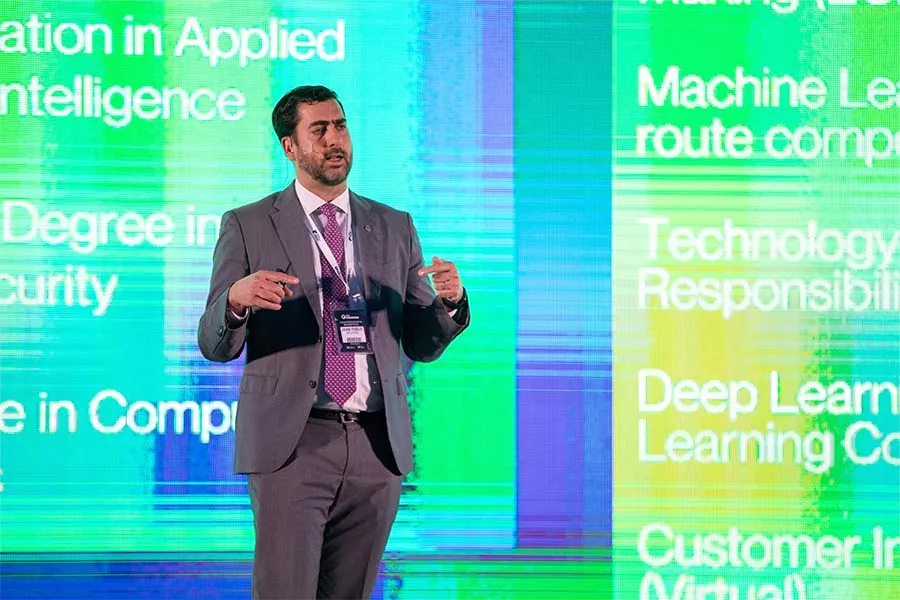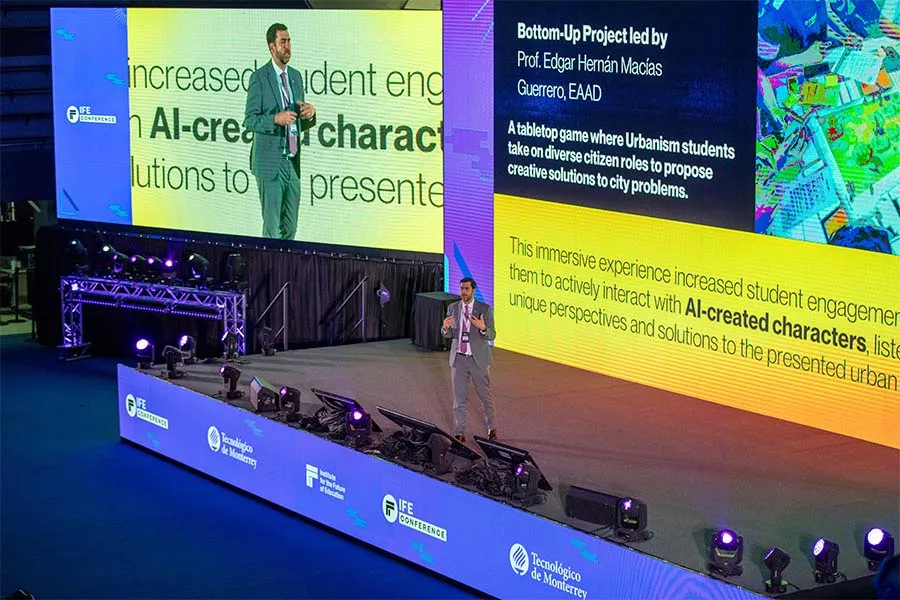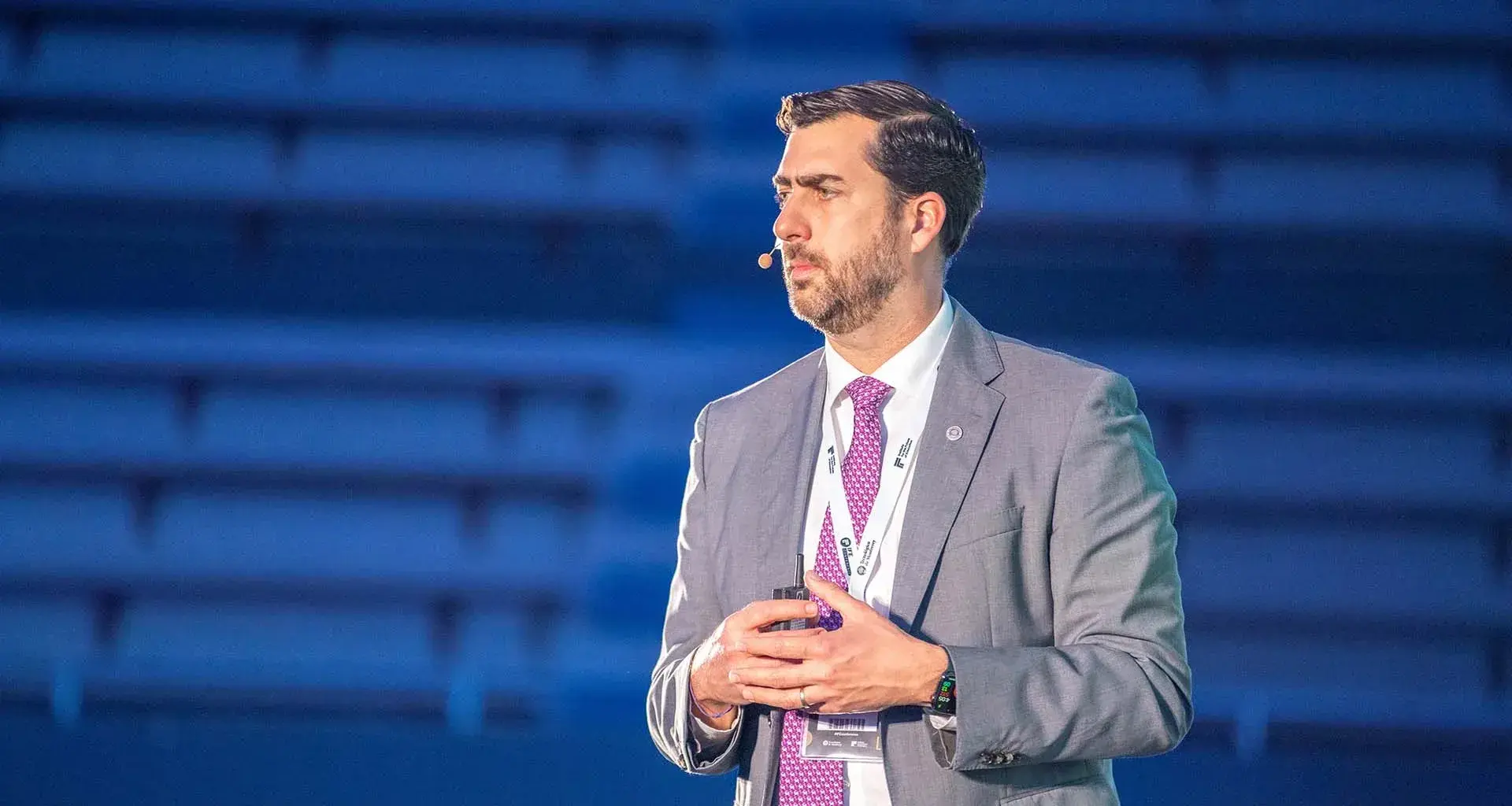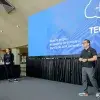How can we improve teaching with artificial intelligence (AI) tools? This is the question that Tecnológico de Monterrey is asking itself about this new technology, which was answered by Juan Pablo Murra, Rector for Higher Education at the Tec.
The director said that the Tec uses AI in teaching-learning processes, in research, to qualify professionals as AI experts, and also to improve the institution’s operations and services.
That is what he said in his keynote speech AI and EdTech at the Tec during IFE Conference 2024, the educational innovation conference of Tecnológico de Monterrey’s Institute for the Future of Education.
He also explained how they are incorporating it into syllabuses so that students can graduate with AI qualifications.

The Rector for Higher Education at the Tec explained that the institution employs 5 pillars for using artificial intelligence, namely:
- Leveraging AI for the teaching-learning process
- Developing expert AI professionals
- Implementing AI research and development
- Using AI ethically for our human future
- And utilizing AI to improve the Tec’s operations.
Applying AI to the teaching-learning process
At present, Tec de Monterrey is focusing on using this technology for personalization, feedback, and evaluating teaching-learning processes.
What’s more, it’s experimenting with 50 AI courses in different areas such as:
- Adaptive learning
- Analyzing cognitive-affective states
- Validating text authenticity
- Virtual assistants (TecBot for T-L)
- Analytics for personalized learning
In total, 4,700 faculty members have designed and actively participated in workshops, boot camps, resources, and pilot projects with experts in this field, according to Murra.
The Tec has also developed immersive experiences for students, such as City Lab: The Game, a project led by Professor Edgar Hernán Macias.
This is a board game in which Urbanism students assume the roles of different citizens to propose creative solutions to the city’s problems.
The immersive experience increased student participation by allowing them to actively interact with the AI-created characters, listening to their perspectives and unique solutions to the urban challenges presented.
Graduates trained in artificial intelligence
While seeking to empower teachers and leverage AI to improve teaching, there are also more than 300 faculty members redesigning over 44 university programs that fully integrate AI.
Murra said that the aim is to incorporate AI into the study programs of students graduating in 2026 and he noted: “Our students are going to be ready for AI when they leave.”
Some of the components of this project, known as Develop AI Savvy, are as follows:
- Graduates developing AI skills
- Learning content which contains AI modules
- Teaching practice that uses AI tools to innovate
- Incorporating AI into digital learning experiences
- Integrating learning activities with AI resource design
- Creating personalized experiences: using AI for design
- Using AI for evaluation and feedback follow-up
- Using AI to solve challenges with training partners.
Social impact research and development with AI
Tec de Monterrey is also integrating AI into research. According to Murra, in the period from 2023 to 2024 alone, there have been 30 researchers, 12 doctorate offers, and the publication of 48 scientific papers focused on:
- Machine learning
- Computational and hyper-heuristic intelligence
- Data science and applied mathematics
- Biomedical engineering
“Our students are going to be ready for AI when they leave.” - Juan Pablo Murra.
, he mentioned the creation of the fAIr LAC+ Artificial Intelligence Hub, which is focused on ethical use and measuring the impact of artificial intelligence for the social good.
Out of this Hub came the Generative Al Laboratory in collaboration with Wizeline, which will be inaugurated in 2024.
This space also promotes activities to explore how to apply artificial intelligence in the public and private sectors to generate social impact.
It has collaborated with 18 institutions and over 10,000 citizens have benefited. More than 787 participants have been taught on the training model for public officials, academia, and other stakeholders.
Some of the fAIr LAC+ research includes:
- Retina Al: This is an AI and telemedicine-assisted screening model used to detect and prevent diabetic retinopathy in patients diagnosed with type 2 diabetes.
- Olivia Al: This is a tool to record initial interactions between survivors of domestic violence and public officials, transcribe them to text, classify them, and systemize them. It allows public officials to focus on providing appropriate solutions and referrals.
- Dropout Hackathon: This analyzes student data and detects patterns to help create strategies for supporting students at risk of dropping out.
One of the Tec’s AI projects highlighted by Juan Pablo Murra was the one led by Professor Alejandro Martín del Campo in collaboration with Zhouhan Chen from New York University (NYU).
The initiative is known as Monitoring Digital Conversations and Multi-Platform Analysis of Feelings in Electoral Contexts.
Tec de Monterrey’s School of Humanities and Education and NYU are collaborating on this Information Tracer project. It aims to understand how narratives and misinformation are spread, especially during electoral periods.

Ethical use of artificial intelligence
As Tec de Monterrey is also taking care to use artificial intelligence ethically, it has signed several conventions.
One of the agreements most highlighted by Murra was the Rome Call for AI Ethics, promoted by Microsoft, IBM, FAO, the Pontifical Academy for Life and the Italian Ministry of Innovation in Rome, on February 28, 2020.
The Tec was one of the participating universities and the agreement suggests that AI use should be:
- Transparent: All systems must be understandable to the general public.
- Responsible: There must always be someone who takes responsibility for what a machine does.
- Inclusive: These systems must not discriminate against anyone because every human being has equal dignity.
- Impartial: Systems must not follow or create biases.
- Reliable: Artificial intelligence must be reliable.
- Secure and private: These systems must be secure and respect the privacy of users.
In this respect, Tec has developed 9 guidelines for ethical AI use that will soon be shared with faculty, students, and staff. The principles are:
- Respect for human dignity
- Equity
- Transparency
- Not harmful
- Responsibility
- Social and environmental well-being
- Authenticity
- Security
- Autonomy
AI to improve Tec operations
Tec de Monterrey is already using artificial intelligence to improve its operations. Some applications include:
1. TecBot: launched in 2021 to help students, faculty, staff, and parents connect to Tec de Monterrey’s systems. It was enhanced with AI in 2023.
2. Professor Atom 2.0: This is one of the key components of the TECgpt institutional project. This professor guides users on Intelligent Physics content and offers automatic and personalized assistance to undergraduate and engineering students.
3. TECgpt: a generative platform developed by the institution for the institution, which has its own generative AI model capable of summarizing, generating ideas, creating images, carrying out procedures, and searching for information.
YOU’LL ALSO WANT TO READ:





